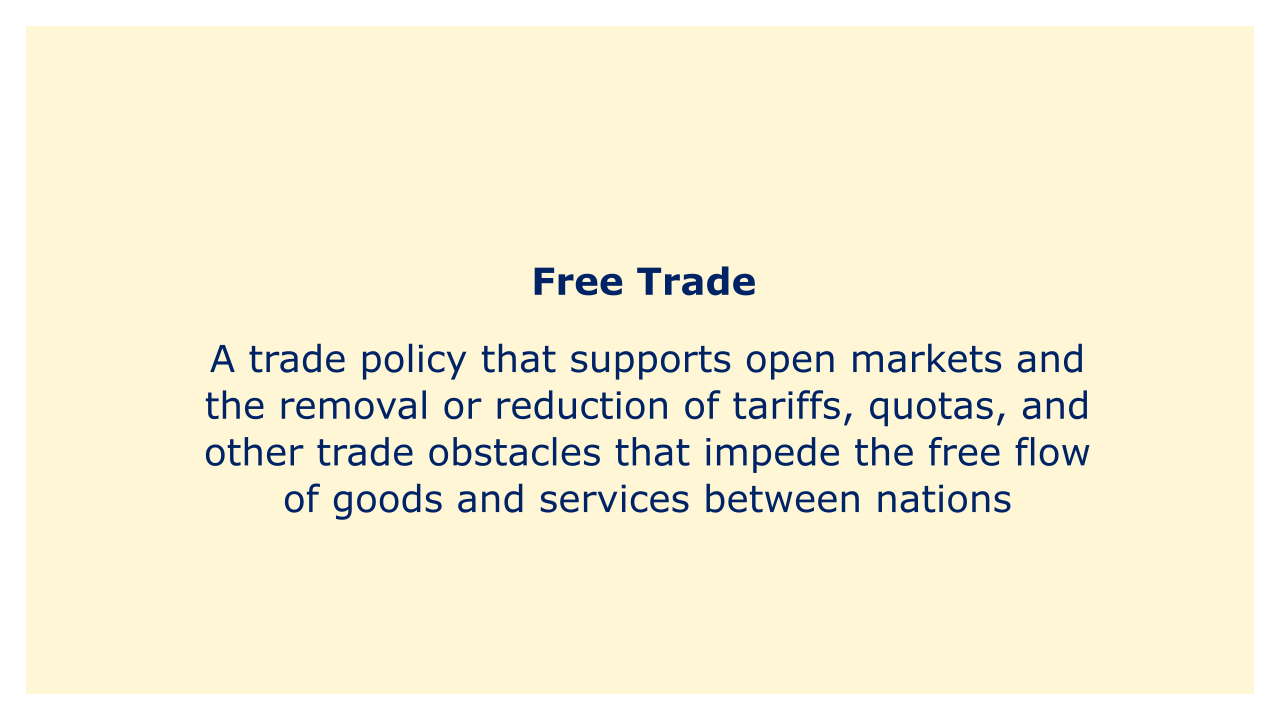 |
| Image: Moneybestpal.com |
The idea of "free trade" refers to the unhindered movement of commodities and services across international borders. A trade policy that supports open markets and the removal or reduction of tariffs, quotas, and other trade obstacles that impede the free flow of goods and services between nations is known as free trade.
Free trade seeks to boost productivity and competition by allowing nations to specialize in producing the commodities and services they are best at while importing those they are less adept at creating.
Free trade has advantages such as higher economic growth, more options for consumers, and reduced costs. Free trade between nations enables them to more effectively generate goods and services by utilizing one another's advantages. Customers pay cheaper prices as a result, and the business environment becomes more competitive. Free trade can also result in higher economic growth since nations can concentrate on the markets and industries in which they excel.
Free trade's detractors claim that because less efficient industries must compete with less expensive imports, it might result in job losses and lower pay. Some contend that it may also result in a loss of sovereignty because nations are compelled to abide by the terms of international trade agreements. Free trade proponents contend that these issues may be resolved, nevertheless, by implementing measures that assist workers and advance economic growth.
Free trade has advantages such as higher economic growth, more options for consumers, and reduced costs. Free trade between nations enables them to more effectively generate goods and services by utilizing one another's advantages. Customers pay cheaper prices as a result, and the business environment becomes more competitive. Free trade can also result in higher economic growth since nations can concentrate on the markets and industries in which they excel.
Free trade's detractors claim that because less efficient industries must compete with less expensive imports, it might result in job losses and lower pay. Some contend that it may also result in a loss of sovereignty because nations are compelled to abide by the terms of international trade agreements. Free trade proponents contend that these issues may be resolved, nevertheless, by implementing measures that assist workers and advance economic growth.
